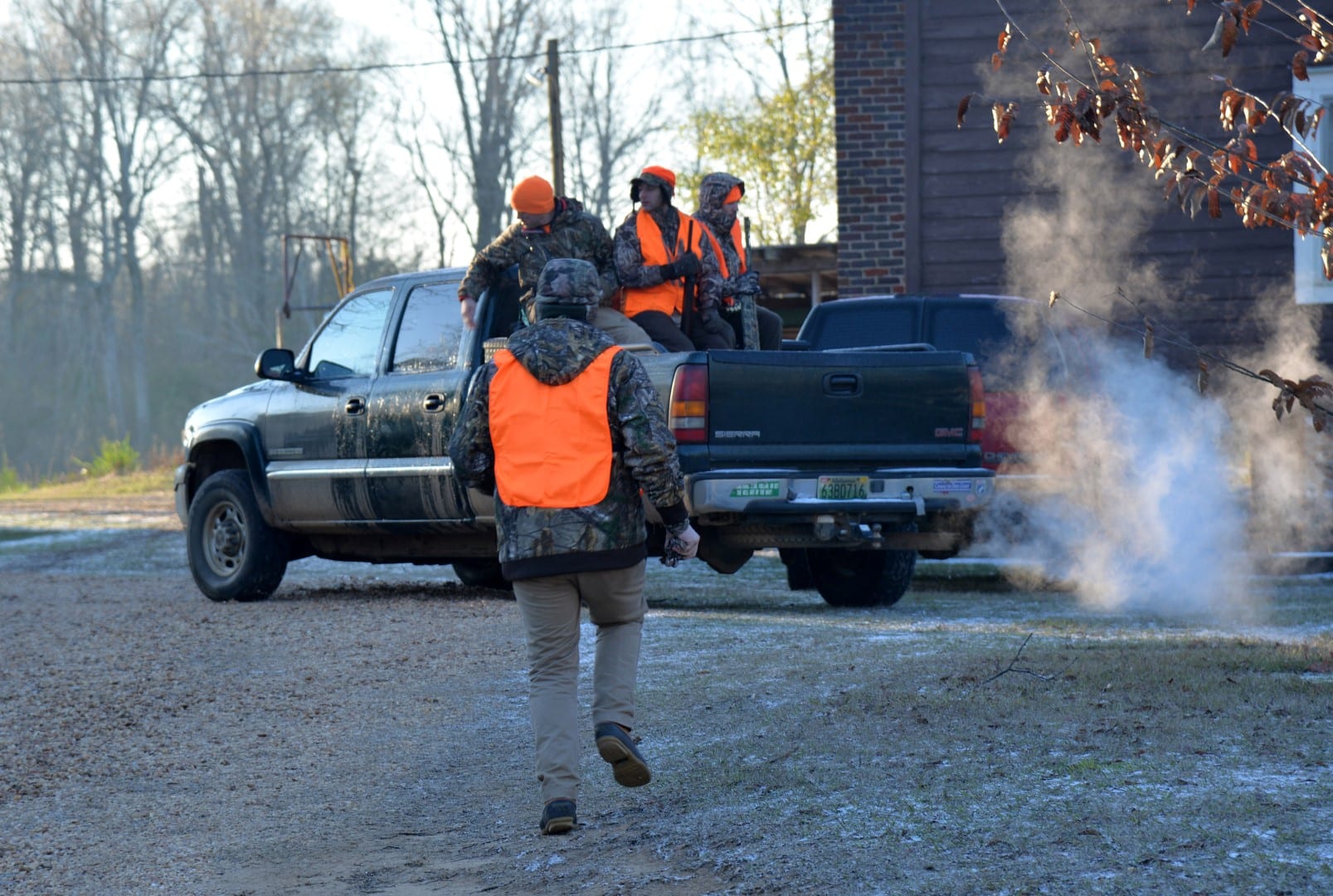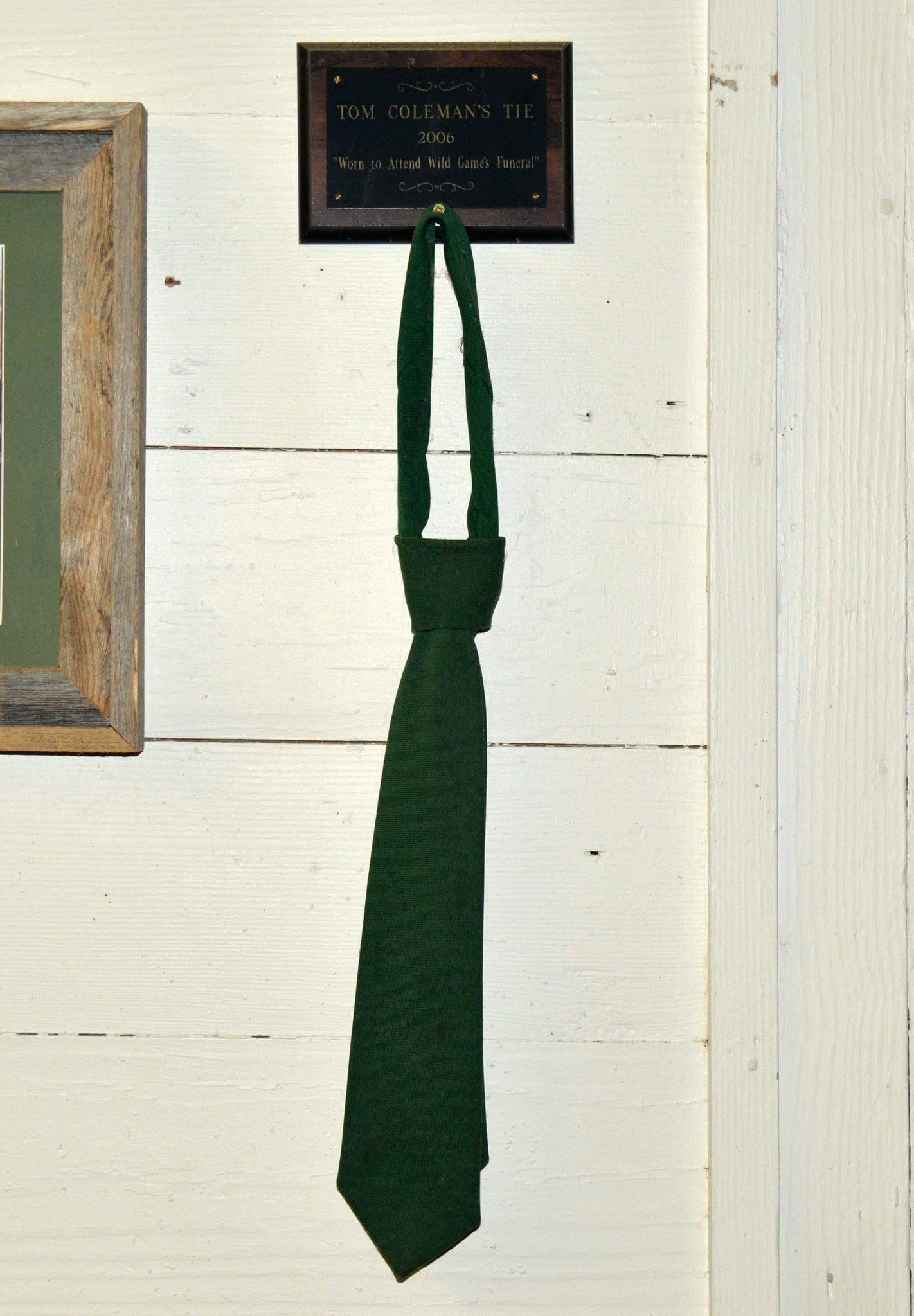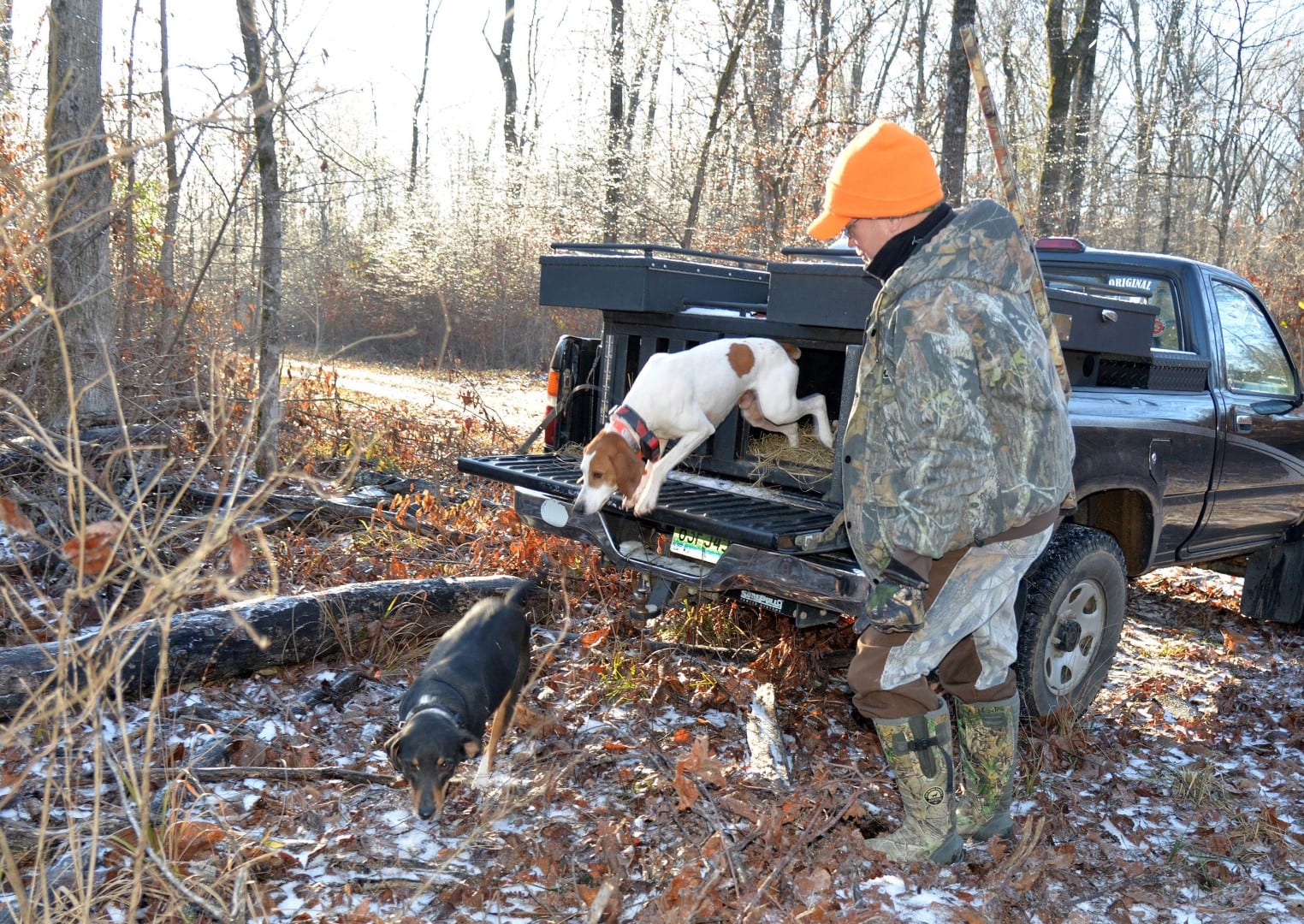Cypress knees poked from frozen ponds like beer bottles on ice as Mike Watts and I listened for hounds howling after deer on the Millwood estate.
The 21-degree air and steady winds on a recent January morning weren’t the weather the Millwood Hunt Club prefers for its four annual Saturday deer-hound drives. But this is deer hunting and you work with what you get, even if it includes snow glistening on palmettos.

Cypress knees jut through thin ice coating a pond in central Alabama on the Millwood estate.
And so the hounds trailed deer through the swamp’s frosty pines and briars while 25 hunters shivered in wait with shotguns and buckshot, hoping distracted deer would trot within their loads’ 40-yard range. Still, the hunt wasn’t blind to the cold. An overnight storm had glazed the region’s roads with sleet and snow, cutting attendance by a third or a fourth, depending on whose math you referenced. But the houndsmen reached Millwood with their two four-dog packs, and that’s what mattered most.
As Watts and I listened appreciatively to the wafting hound chorus, he expressed regrets that Judge George Wright, 91, was no longer among the standers or drivers braving the cold. The judge still gets around with a cane, and still questions guests with keen interest and sincerity, but he can no longer negotiate the muck, roots and tangles of Millwood’s 2,400 acres bordering the Black Warrior River.

Hunters load up for the ride out to deer stands to set up a deer-hound drive.
The families of Judge Wright and his sister, Camille W. Cook, 92, a former associate dean at the University of Alabama’s law school, jointly own Millwood. Judge Wright and Miss Camille have lived next door to each other since 1969, and came to own Millwood by drawing cards with other family members when their great uncle’s entire estate was divided around 1960. Judge Wright and Miss Camille drew the 4 of clubs, which designated Millwood. That winning card still hangs inside the Cook family’s house at Millwood.
Thanks to the judge, hounds still chase deer past landmarks like Stella’s Pond, the Parking Meter and the Bald Cypress Sink. Judge Wright kept that tradition alive for years. He once owned his own deer hounds and loved hounding’s traditions, but the days of keeping and caring for dogs, and conducting weekend-long deer-hound drives are long gone at Millwood.
The club now relies on its fellow members – in this case, brothers Rex and Kent Robertson, and Dean Hodge and his son, Jack – to bring their hounds for the club’s four half-day hunts. The houndsmen, of course, also handle the dogs’ year-round room, board and training – burdens they proudly embrace. They’re glad to carry on the customs and rituals as part of their love of hounds and hound hunting.
Those traditions include stories, photos and plaques honoring past Millwood Hunt Club members, perhaps none larger than the late Tom Coleman, a Birmingham attorney. As you walk from the bunk rooms of “The Big House” – a former 1800s hotel at a Black Warrior ferry crossing that served steamboat and stage-coach travelers – and pause in a dining room on your way to the kitchen, you notice a unique plaque on the eastern wall.
The plaque holds a dark-green tie, still knotted in a half-Windsor, and reads: “Tom Coleman’s Tie, 2006, Worn to Attend Wild Game’s Funeral.” Cade Cook, Judge Wright’s nephew; and Tom Miller, the judge’s son-in-law, said Coleman hunted at the club about 25 years, including 1991 to 2005 as a member.

Mr. Tom Coleman of Alabama always wore this tie while hunting.
Whether he was hunting deer, ducks or turkeys at Millwood, or quail or turkeys elsewhere, Coleman always wore that tie with his brush pants, hunting cap and khaki shirt. “He adjusted the tie depending on the temperature,” Cook said. “If it was cold, he snugged it up tight, and if it was hot he loosened it a bit.”
Of course, everyone asks why Coleman wore a tie to hunt, snug or loose. “He always said that sometimes he’d stray across the property line while hunting,” Cook said. “The neighbors would stop him and get him oriented, but they’d never get mad at him.”
Why wouldn’t they get mad? “Mr. Tom said people just don’t get mad at a man who’s wearing a tie,” Cook said. “Other times he’d walk up to their home, knock on their door and ask permission to hunt their land. Because he wore a tie, they’d let him hunt. So he always wore that tie.”
Eccentric? Perhaps. But Coleman – like all Millwood members – didn’t get into the club without someone vouching for him. The judge said Coleman came in through fellow Birmingham attorneys George Williams and Henry Poellnitz, one of Judge Wright’s distant relatives.
It also helped that Coleman, like the judge, was a Navy officer in World War II. “Tom Coleman had the distinction of having a ship sunk from beneath him in both oceans,” Cook said. “He was serving in the Pacific as a beach master when his ship got sunk. He survived and the Navy sent him home for 30 days. Then they reassigned him to the Atlantic for the D-Day invasion, and he got sunk again.”
Club member Mike Welborn, the club’s treasurer, recalled how Coleman dealt with people who sought free legal advice. Welborn once got nabbed for speeding while driving to Millwood, and wanted to fight the ticket.
“I asked Mr. Coleman what I should do,” Welborn said. “Mr. Coleman asked if I wanted his legal advice. I said, yes, I did. So Mr. Coleman said, ‘Pay the fine. That’s my legal advice.’ Then he stuck out his hand and said, ‘Now pay me $300 for the legal advice I just gave you.’”
Coleman also knew how to deal with ministers who tried to guilt-trip him for occasionally missing Sunday services during turkey season. Watts recalled that Coleman was a Baptist, and the preacher asked Coleman’s wife one Sunday why he was missing.

Kent Robertson unloads two deer hounds for a deer drive Jan. 7 by the Millwood Hunt Club.
“Well, ol’ Tom decided the best thing for him to do was straighten that out quick,” Watts said. “So one Sunday morning the preacher got up there to do his thing after they’d done all their singing and everything, and just as the preacher started in, Tom came in the back door with a big ol’ turkey gobbler. He went and walked all the way down the aisle to the front row, laid the turkey down, and then sat in the pew. I think they quit talking about him missing church after that. He was one of our old greats.”
I thought of those stories at dusk that evening after stepping outside to admire a blood-red sunset where the Black Warrior disappears around a bend. It had been a great day, and the group hung three deer on the camp’s buck-pole.
Then I shivered, zipped up my down-insulated vest as if adjusting a half-Windsor, and listened for the ghostly baying of Millwood’s long lost deer hounds.

 By
By 



